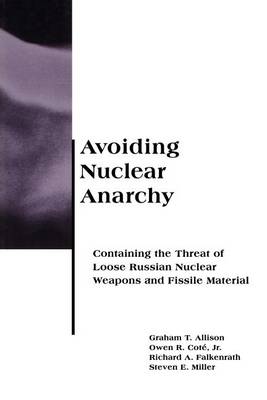Belfer Center Studies in International Security
3 total works
America's Achilles' Heel
by Richard A Falkenrath, Robert D Newman, and Bradley A. Thayer
-- U.S. Senator Richard Lugar Nuclear, biological, and chemical (NBC) weapons delivered covertly by terrorists or hostile governments pose a significant and growing threat to the United States and other countries. Although the threat of NBC attack is widely recognized as a central national security issue, most analysts have assumed that the primary danger is military use by states in war, with traditional military means of delivery. The threat of covert attack has been imprudently neglected.
Covert attack is hard to deter or prevent, and NBC weapons suitable for covert attack are available to a growing range of states and groups hostile to the United States. At the same time, constraints on their use appear to be eroding. This volume analyzes the nature and limits of the covert NBC threat and proposes a measured set of policy responses, focused on improving intelligence and consequence-management capabilities to reduce U.S. vulnerability.
Avoiding Nuclear Anarchy
by Graham T. Allison, Owen R. Cote Jr., Richard A Falkenrath, and Steven E. Miller
This study by Graham Allison and three colleagues at Harvard's Center for Science and International Affairs warns that containing the leakage of nuclear materials-and keeping them out of the hands of groups hostile to the United States-is our nation's highest security priority.
What if the bomb that exploded in Oklahoma City or New York's World Trade Center had used 100 pounds of highly enriched uranium? The destruction would have been far more vast. This danger is not so remote: the recipe for making such a bomb is simple, and soon the ingredients might be easily attained. Thousands of nuclear weapons and hundreds of tons of weapons-grade uranium and plutonium from the weapons complex of the former Soviet Union, poorly guarded and poorly accounted for, could soon leak on to a vast emerging nuclear black market.This study by Graham Allison and three colleagues at Harvard's Center for Science and International Affairs warns that containing the leakage of nuclear materials-and keeping them out of the hands of groups hostile to the United States-is our nation's highest security priority. As the most open society on a shrinking planet, the United States has no reliable defense against smuggled weapons fashioned from black-market materials by a determined state or terrorist group. Avoiding Nuclear Anarchy highlights the fact that the only way to combat the threat is by preventing nuclear leakage in the first place. Its message is both timely and urgent: it outlines the new nuclear danger and details how to reshape U.S. national security policy to deal with these dangers.

